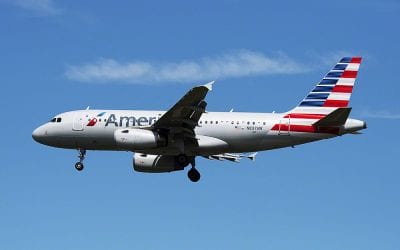Last year, the Transportation Security Administration (TSA) flunked 67 of 70 screening tests to determine how well they screen passengers. In the last few months, air travelers in the U.S. have regularly reported airport checkpoint security line delays of two hours. Last week, at Phoenix Sky Harbor International Airport, more than 3,000 pieces of luggage missed their flights because TSA’s checked luggage screening system broke down.
This summer, the prospect of long lines at airport security checkpoints and more breakdowns in luggage screening have caused air travelers in the U.S. increased apprehension.
Massachusetts Senator Edward Markey (D) and Connecticut Senator Richard Blumenthal (D) have proposed that the airlines drop their checked baggage fees this summer to help alleviate the long lines at airport security checkpoints. The two senators have contacted 12 airlines about their proposal. Even if the airlines would comply with the senators’ request, it’s doubtful it would do much to help the situation.
The senators opine that if there were no checked luggage fees, many passengers would check their luggage instead of hauling any into their planes’ cabins. I think they’re wrong. They don’t seem to understand airline luggage issues.
• Passengers prefer to use carry-on luggage to avoid check-in lines and long baggage claim waits. If they check their bag, it would defeat that purpose.
• Especially for long flights, passengers need their carry-ons to haul essentials needed during their flight, especially if they have children with them. Business people are likely to retain their carry-ons to ensure they have what they need for their work at their destination.
• Many passengers use a carry-on due to the liability limits on luggage and belongings. The airlines don’t accept liability for valuables, breakables, electronics, laptop computers and other expensive gear due to damage, theft or other losses. If a passenger packed a camera or laptop in their missing checked luggage, the airlines won’t reimburse them for their loss.
Airlines limit the total liability they have with each passenger. On U.S. domestic flights, passengers are limited to a total reimbursement for items lost, stolen or damaged to just $3,500. For many passengers, that wouldn’t cover their cost of replacing their luggage and the belongings in it without any packed valuables in their bag.
• Some air travelers, especially those who must change planes to get to their destination, prefer to have a carry-on to bring along a change or two of clothes and other important gear in case their checked luggage goes missing.
• Checked luggage gets screened similarly to carry-ons, so a change away from carry-on bags to checked bags could very well stress the checked luggage screening system, potentially causing more major breakdowns like that experienced in Phoenix.
If the senators want shorter lines at TSA airport checkpoints they can make a difference by increasing TSA funding so TSA can:
• Expand the number of security lines at airports;
• Increase screening personnel so security lines can be kept open longer;
• Add explosive sniffing dogs to cut explosives’ test times;
• Obtain improved screening software, and
• Redesign security checkpoints for increased efficiency.
A security checkpoint redesign is coming to Atlanta Hartsfield-Jackson International Airport later this month at one of its checkpoints. At this time, no other airport checkpoint in the U.S. is getting this upgrade.
A significant increase in checked luggage this summer could result in more devastating checked luggage screening system breakdowns like Phoenix.
At Phoenix Sky Harbor International Airport the computer-driven checked luggage screening system came to a halt last Thursday and lasted almost the entire day. Apparently, a network switch failed, which caused the software system to continuously reboot. It took most of the day to repair the system. That’s an amazing vulnerability for such an important airport security system.
Apparently, the big checked luggage scanners at airports can’t be used as individual stand alone systems during computer system breakdowns. The failure forced Phoenix TSA officials to hand check passengers’ bags and use dogs to check for explosives. The process was so slow that more than 3,000 checked bags never made it on passengers’ flights.
Eventually, in order to process the checked bags, more than 1,000 bags were taken by tractor-trailer for screening at Las Vegas MacCarran International Airport. Other bags were also loaded into trucks and taken for screening at airports in Tucson, Arizona, and San Diego, California.
The senators need a different approach for the problem. What they’ve suggested won’t work.
Hopefully, Senators Markey and Blumenthal will soon learn that if Congress continues to under-fund TSA, forcing it to cut personnel, equipment upgrades and system redesigns, there will be serious consequences. Unless major changes to our airport security systems are instituted for both personnel and equipment, visitors to the U.S. and the American traveling public will regularly encounter security lines as long as two hours and luggage screening breakdowns will become more and more frequent.
(Image: Denver Airport, TSA Security, Copyright 2009 Dan Paluska)
After many years working in corporate America as a chemical engineer, executive and eventually CFO of a multinational manufacturer, Ned founded a tech consulting company and later restarted NSL Photography, his photography business. Before entering the corporate world, Ned worked as a Public Health Engineer for the Philadelphia Department of Public Health. As a well known corporate, travel and wildlife photographer, Ned travels the world writing about travel and photography, as well as running photography workshops, seminars and photowalks. Visit Ned’s Photography Blog and Galleries.



